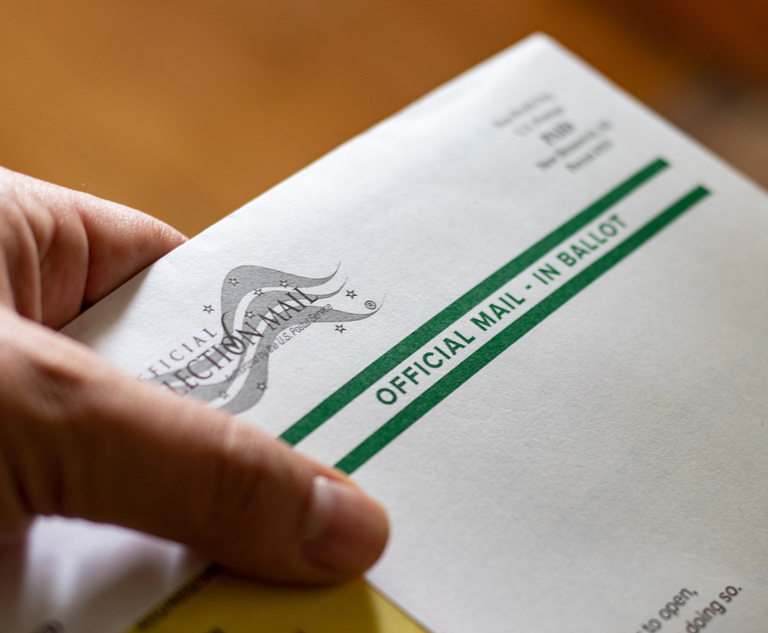
March 12, 2024 | New York Law Journal
Voting in New YorkWhile most Americans are focused upon trials and court rulings impacting the 2024 presidential election, this article takes a moment to review two significant New York-related developments. In both cases, the goal was to expand voting rights. As of now, one succeeded and one did not.
By Jerry H. Goldfeder
8 minute read

March 11, 2024 | New York Law Journal
Ask the Former Regulator: Condo Conversions Under Amended Law for Small BuildingsIn this article, Erica F. Buckley recaps the 2022 amendments to the Martin Act and how they may apply to a situation where a husband and wife are looking to convert their building into a condominium.
By Erica F. Buckley
6 minute read

March 11, 2024 | New York Law Journal
Artificial Intelligence Is Monopolizing the Attention of Regulators and LawmakersThe new era of AI technology has ushered in competition concerns alongside consumer-protection fears. Accordingly, regulators and lawmakers are taking note of the AI craze and are keen on ensuring that companies involved in AI are respecting both antitrust and consumer protection laws.
By Karen Hoffman-Lent and Kenneth Schwartz
11 minute read

March 11, 2024 | New York Law Journal
US Companies Must Comply With GDPR Rule for a Local RepresentativeIn his Technology Law column, Peter Brown discusses the European Union's General Data Protection Regulation and highlights how a hidden obligation under Article 27 is the requirement that non-EU businesses designate in writing a representative located in an EU country.
By Peter Brown
8 minute read

March 08, 2024 | New York Law Journal
Striking a Balance: Exploring Legal Consequences of Frivolous ClaimsAttorneys often find themselves navigating the delicate balance between advocating for their clients' interests and upholding the integrity of the judicial system. The recent decision by the First Department in '13 E. 124 v. J&M Realty Services, et al.' sheds light on the risks and challenges associated with representing clients with potentially frivolous or nonviable claims.
By Deanna L. Koestel and Dominique Kilmartin
5 minute read

March 08, 2024 | New York Law Journal
Inevitable Disclosure Under DTSA: To Apply or Not To Apply?This article focuses on the split on the inevitable disclosure doctrine and recent developments indicating how New York is likely to come out on the issue.
By Sharon Lee, Ching-Lee Fukuda and Halley Herbst
8 minute read

March 08, 2024 | New York Law Journal
Extraneous? Collateral? Is It Time to Simplify the Standard for When Fraud Claims Improperly Duplicate Breach of Contract Claims?To promote commercial certainty and avoid a deluge of unnecessary litigation, it is important to have clear, easily applicable standards that govern when and whether tort claims duplicate contract claims impermissibly.
By Andrew Goldsmith
6 minute read

March 08, 2024 | New York Law Journal
Getting It Done: Successful Techniques for Mediating New York Labor Law CasesIn this article, Michael B. Titowsky focuses on Labor Law mediation. What are the best approaches to Labor Law mediations? How do we increase our chances of success? How do we respond to and hopefully move past impasses?
By Michael B. Titowsky
14 minute read

March 08, 2024 | New York Law Journal
Understanding Rule 702 and the 'Daubert' Standard; Related Updates in the Tylenol and Paraquat MDLsThis article discusses how, for multidistrict litigation (MDL) to move forward to trials, we must understand 'Daubert', Rule 702 and the role of the judge in determining the admissibility of expert testimony. It goes on to highlight recent updates in related Tylenol and Paraquat MDL cases.
By Edward E. Neiger, Alexandra Robertson and Gregory Lawrence
6 minute read

March 08, 2024 | New York Law Journal
Our Understanding of Memory Has Changed, the Rules of Evidence Have NotIt isn't news that eyewitness testimony is sometimes inaccurate. What might be news, however, is that significant research makes plain that it is often wrong, even when the eyewitness believes they are telling the truth. Lawyers and courts should reconsider how the rules of evidence treat eyewitness testimony.
By Joshua Sohn and Jacob Zucker
9 minute read
Trending Stories
- 1With a 7-Figure Book Deal and TV Adaptation on the Way, This Dechert Associate Remains Committed to Her Day Job
- 2Northwestern University Pritzker Law School Hit With Reverse Discrimination Lawsuit
- 3Biden Will Be First Lawyer-President Without a JD From the 'T-14' in a Century
- 4The Week in Data: A Look at Legal Industry Trends by the Numbers
- 5Settlement reached in lawsuit over death of clerk prior to $51 million jury award
More from ALM
- Morgan & Morgan Class Action Attorneys Detail Pathway to Success Within Cybersecurity and Data Privacy Practice 1 minute read
- Holwell Shuster & Goldberg Partners Leverage 'Hostile' Witnesses to Secure $101 Million Verdict Against Walmart 1 minute read
- Legal Speak at General Counsel Conference Midwest 2024: Mike Andolina, Partner, White & Case 1 minute read



